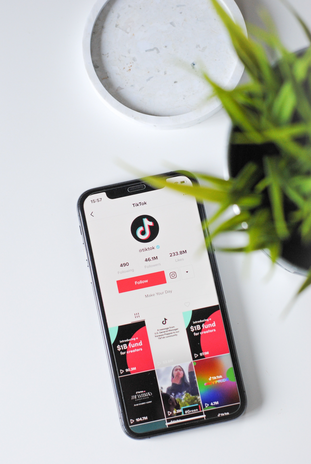A 15-second video. What damage could possibly be done, right? You might be surprised.
TikTok, a social media where users share 15- to 60-second videos, has taken the world by storm. These short videos are often meant to be harmless and fun, but many of them are actually adding to the negativity associated with our culture. Uploading one of these videos may seem casual, but when half a billion people are using the social media app, these videos are bound to become influential.
As TikTok’s popularity continues to expand at a feverish rate, the app becomes more impactful on society. A common theme with this app is emerging trends. In other words, when one person completes a certain type of video to a certain sound and the video goes viral, many people begin to recreate it, sometimes with their own unique take, and then that type of video becomes a trend. Especially with dances, many people copy each other’s movements until it becomes so popular many users can’t hear the song without thinking of the associated trend.
At a first look, it seems harmless to follow or recreate a current trend. What’s wrong if everyone is doing it, right? However, this is where the problem begins. If people think participating in certain trends is acceptable just because other people are doing so, then what does this say about society as a whole?
Here are some trends that I have analyzed, and I have realized that they might do more harm than people think.
- The “What I Eat in a Day” challenge
-
If you click on this sound, you can find numerous videos that fit into the “what I eat in a day” trend. This “challenge” consists of people videoing themselves throughout the day and capturing everything they eat. At first watch, these videos may seem innocent. However, these videos are contributing to diet culture and negative ideas associated with body image. When people with a lot of followers post what they eat in a day, their viewers are likely to be influenced by this post. And if someone is eating a lot more than what they show in one of these videos, viewers who are unaware of that might start to feel insecure about their food intake and do something harmful to themselves because of it.
On the other hand, many people who post these videos purposely post a large amount of food in an effort to show off their fast metabolisms. For people who struggle with their metabolism, this only hurts their self-esteem. Even though these videos aren’t telling people what they should or should not eat, they are inevitably influencing people.
In a culture where people struggle heavily with body image and eating disorders, these so-called harmless videos can cause some damage.
- Throwing it Back
-
TikTok has become well known for dance videos, and many new dance trends emerge on a daily basis. Along with these dance trends come notable dance moves that can be found repeated in other trends, especially if they are widely popular.
One of the most known dance moves is called “throwing it back,” which involves moving your leg back while shaking your butt. Although this may just seem like a silly dance move, it is influencing kids at a young age to do inappropriate dance moves. TikTok stars, such as 16-year-old Charli D’amelio and 20-year-old Addison Rae Easterling, throw it back to many songs, including the one above. Since many young kids look up to these TikTok influencers, they then copy these movements. If participating in these rather promiscuous dances wasn’t bad enough, the young kids also do so to inappropriate songs.
- The “You Have to Stop” trend
-
This trend includes the song “A Moment Apart” by ODEZA and involves people doing voice overs to the song while saying “you have to stop” with a follow-up statement. Some of these are seen as comical and relatable because the statements that follow usually include something that many people find irritating. However, to some people, these statements can be insulting or hurtful.
Even when trends seem funny at first, people should take a step back and think about the side effects they may cause. Having a platform in today’s digital age comes with more responsibility than ever. If you are lucky enough to have a platform, I encourage you to do your best to help others rather than bring them down.



